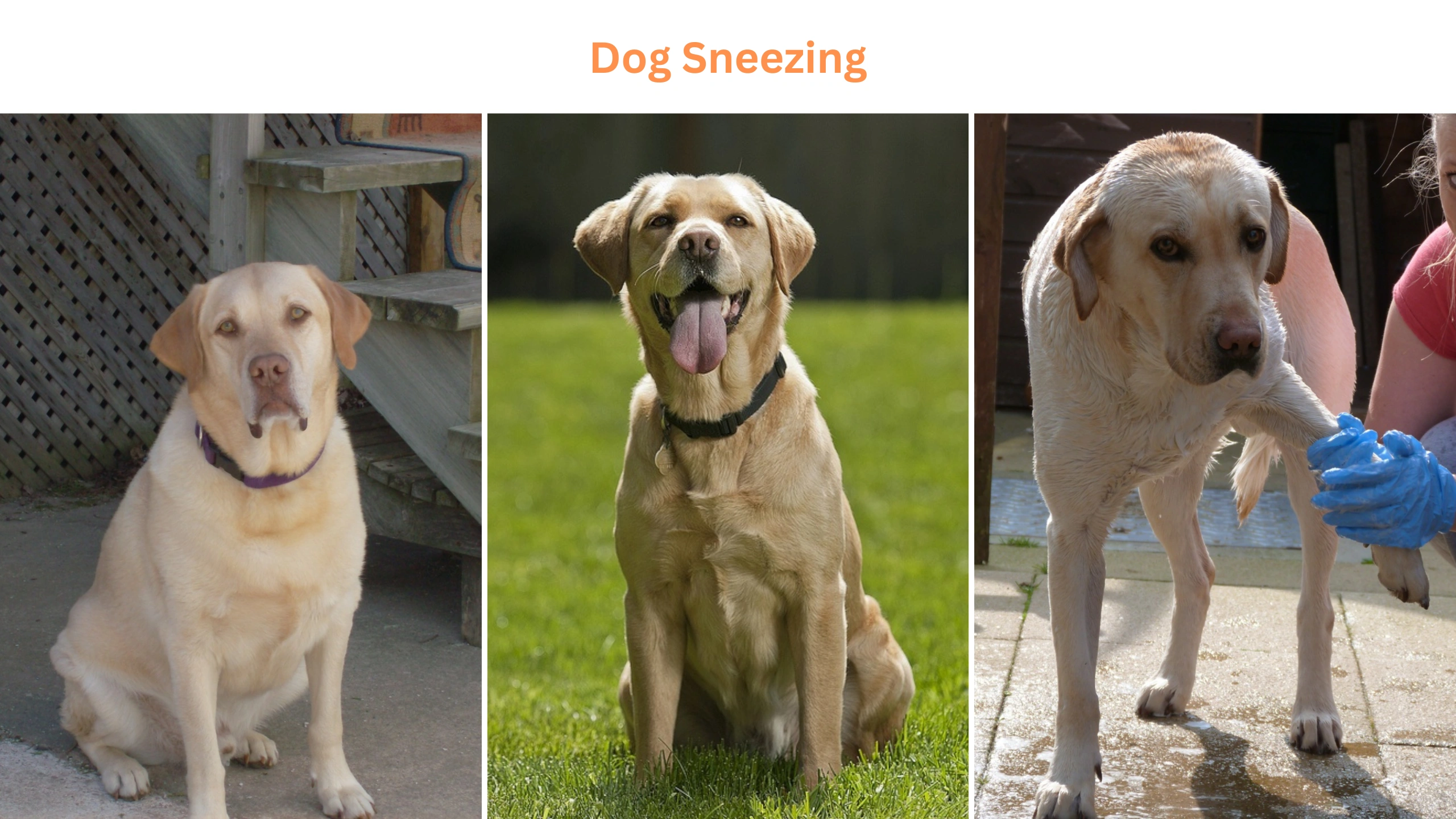Last Updated on February 12, 2024 by Aftab Tariq
Dog sneezing is common among dogs and can be caused by various reasons. While occasional sneezing in dogs is usually not a cause for concern, persistent sneezing may indicate an underlying health condition.
Dog owners must pay attention to the signs and situations surrounding dog sneezing. Sneezing in dogs can indicate different health issues, and consulting with a veterinarian is recommended to determine the specific cause.
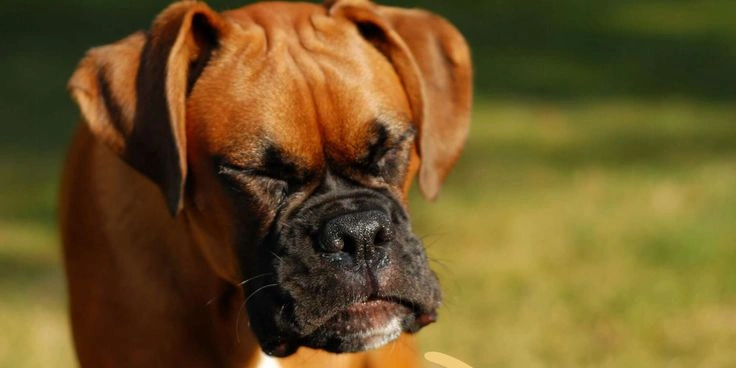
Some reasons for dog sneezing cold include allergies, respiratory infections, foreign objects, or nasal mites. Dogs with flat faces, such as Bulldogs or Pugs, may experience sneezing due to their unique nasal anatomy.
In any case, being aware of the factors that contribute to dog sneezing attack and seeking professional advice can help ensure the well-being of dogs and address any potential concerns promptly.
What Causes a Dog to Sneeze?
Dogs may show sneezing behaviour as a result of seasonal allergies, particularly if they experience increased sneezing after being outdoors or when exposed to open windows. Heightened pollen levels can prompt the need for allergy management in your dog.
Wide Range of Sensitivity
Food Intolerances
Another common sign of food allergies in dogs is an increased frequency of sneezing. While food allergies typically impact a dog’s skin, coat, and digestive system rather than their respiratory system, you may observe heightened sneezing a few hours after your dog’s last meal.
To address food allergies in your dog, consider feeding them high-quality diets that incorporate alternative protein sources. Introduce new foods gradually to prevent potential gastrointestinal issues. With patience, you’ll discover the optimal dietary option that suits your dog’s needs.
Exposure to a Foreign Body by Inhalation
If your dog sniffs small objects like broken toys, there’s a risk of something getting stuck in its nasal passage. If you have concerns about this, it’s important to seek prompt medical assistance for your pet.
A vet will examine your dog to identify and address any potential blockage in the airway, ensuring your dog’s well-being. Acting swiftly is vital in such situations.
Nasal Cyst
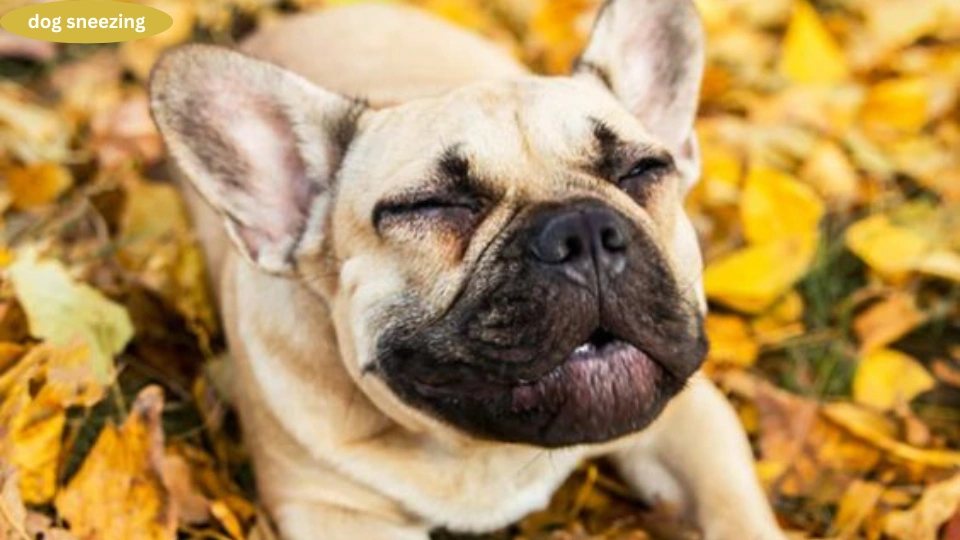
If your dog is dealing with a nasal tumor, it may exhibit increased and more pronounced sneezing. As the tumor grows, the frequency of sneezing can rise, along with additional symptoms like wheezing, coughing, and a runny nose in the upper respiratory tract.
When seeking veterinary care for your dog’s nasal tumor, your veterinarian will assist in determining the best course of action. In many cases, the tumors can be surgically removed, and, if necessary, additional treatments like chemotherapy may be recommended to shrink the tumors.
Dental Issues
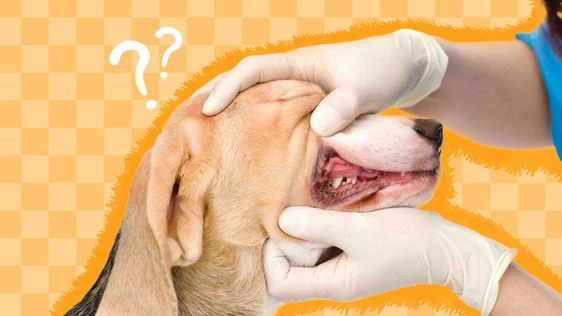
If your dog keeps sneezing, it could mean they have dental problems that need attention. This could be linked to issues like tumors, gum problems, or broken teeth.
While checking their mouth might help, sometimes the vet needs to use sedation for a proper dental checkup and cleaning.
Taking care of your dog’s dental health is crucial to prevent these problems from escalating over time. Regular checkups and dental care can keep your four-legged friend healthy and happy.
Canine Common Expressions
Dogs often express themselves through sneezing, a form of communication they use not only with each other but also with their human companions. This behavior is a natural way for dogs to convey emotions like excitement, happiness, or submission to other dogs.
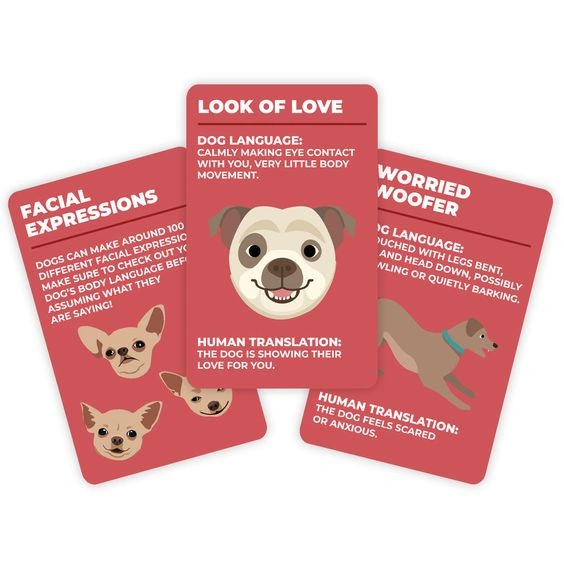
If your dog sneezes when they’re happy or thrilled, there’s usually no need to worry—it’s a normal part of their communication. In most cases, canine sneezing is harmless, especially if it occurs occasionally.
However, if your dog is sneezing frequently and the condition persists or worsens over time, it’s advisable to seek veterinary attention for a thorough checkup.
Types of Dogs Likely to Cause Nasal Congestion
Due to the structural compression in their nasal passages, brachycephalic, also known as sneezing, is more common in dogs because of their flat faces. A Pug, the Boston terrier, and the English bulldog are the three brachycephalic dog breeds most likely to have breathing or sneezing issues.
Sneezing in Dogs that Cannot Be Stopped
As a pet parent, the sight of severe sneezing may be quite unsettling to experience. The most frequent reasons for uncontrolled sneezing in dogs are foreign things in the nasal passages, nasal mites, or a tumor in the nasal passage.
Suppose your pet is sneezing often, especially if there is also a nasal discharge occurring at the same time. In that case, it may suffer from an upper respiratory infection, and you must seek emergency veterinarian treatment.
Dog Cold Symptoms Besides Sneezing in a Dog
What should you do if your dog exhibits more than simply sneezing but other symptoms? The following is a list of some of the most common signs and what they indicate.
· Dog Sneezing and Coughing
If your canine friend is exhibiting symptoms of sneezing and coughing at the same time, this might be an indication of a more severe underlying health problem.
Several conditions might be responsible for kennel cough, canine flu, or parasites of the respiratory system. Bacteria or fungi-related illnesses may be quite serious and might be to blame.
· Dog Sneezing With Blood
When your dog sneezes blood, it’s a warning indication that there’s something more severe going on with his nasal passages. Objects stuck in the nose, nasal tumors, and illnesses caused by bacteria or fungi are all potential causes of a stuffy nose.
· Wheezing and Coughing
If your dog is sneezing in addition to wheezing, this might indicate an issue; there is something wrong with your dog’s lungs, and it has to be checked out further. Asthma and other respiratory conditions may also be the culprits behind wheezing.
Comparing a dog’s sneeze and Snort
There are instances when it might be difficult to differentiate between snorting and sneezing dogs. The ejection of air often characterizes sneezing in an outward direction, but snorting is characterized by the inhalation of breath along with a sound playing in the background.
It is well known that brachycephalic dogs snore. However, snoring may also be caused by other a symptom of obesity in animals or underlying medical issues in such animals.
How do I Treat My Dog’s Sneezing?
Many different things may cause sneezing in dogs; some need further dog sneezing treatment, while others do not. Before beginning any therapy for your dog’s sneeze, You should never attempt to diagnose the cause of your dog’s sneezing on your own; instead, you should make an appointment with your trusted local veterinarian.
Even while you may be tempted to go for a human over-the-counter medication, it’s important to remember that medicines to assist offer some comfort, such as Benadryl; you should always consult with your local veterinarian first.
When a Dog is Sneezing?
Dogs with occasional bouts of sneezing seldom need to see a vet. However, some cases of canine sneezing need a visit to the doctor for diagnosis. Here are some instances when veterinary attention is warranted:
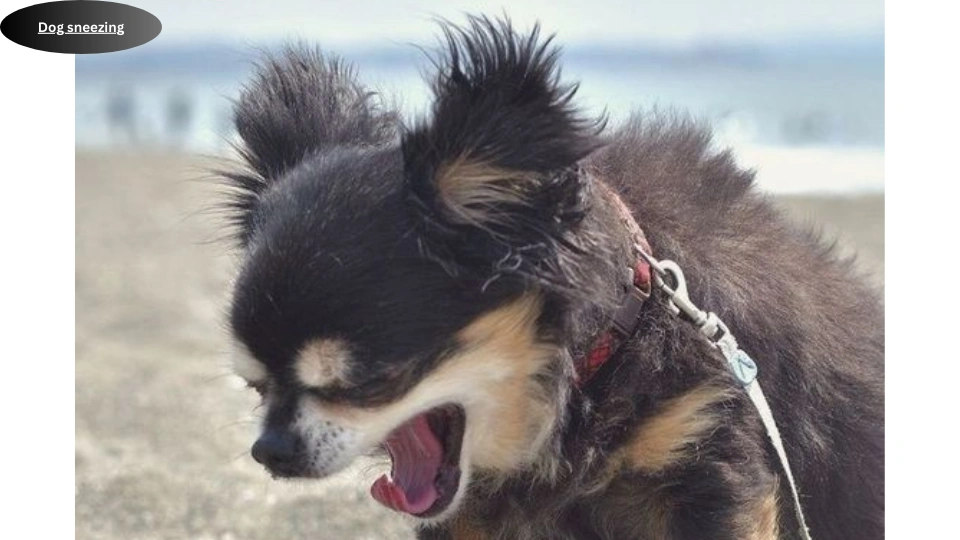
Take your dog to the vet immediately if you see any symptoms: fatigue, fever, reduced appetite, heavy nasal discharge or blood, and nasal edema. More investigation may be required if a dog repeatedly sneezes for no apparent reason.
In addition to sneezing, other canine allergy symptoms include itching, licking, and scratching. Therefore, taking your pet to the vet is important if these symptoms persist.
Frequently Asked Question
What are the causes of a dog sneezing when playing?
Can you Explain a Reverse Sneeze?
Does My Dog Have Something Stuck up its Nose?
What Could Be Causing My Dog's Nose to Run?
Could Someone Be Allergic to My Dog?
My Dog only Sneezes First Thing in the Morning; Why is that?
Are Nasal Infections Possible in Dogs?
Will My Dog Sneeze If He Has a Dental Infection?
Can Kennel Cough Be Identified By Sneezing?
Can a Tumor in the Nose Lead to Sneezing?
When is it Cause For Concern When My dog Sneezes?
For a Runny Nose and Sneezing Dog, What Can I Offer Him?
Why is my Dog Sneezing So Much All of Sudden?
I am a dedicated content writer with more than five years of experience, particularly skilled in the art of storytelling. My writing journey commenced during my college years, where I pursued journalism and unearthed my talent for creating captivating narratives.

